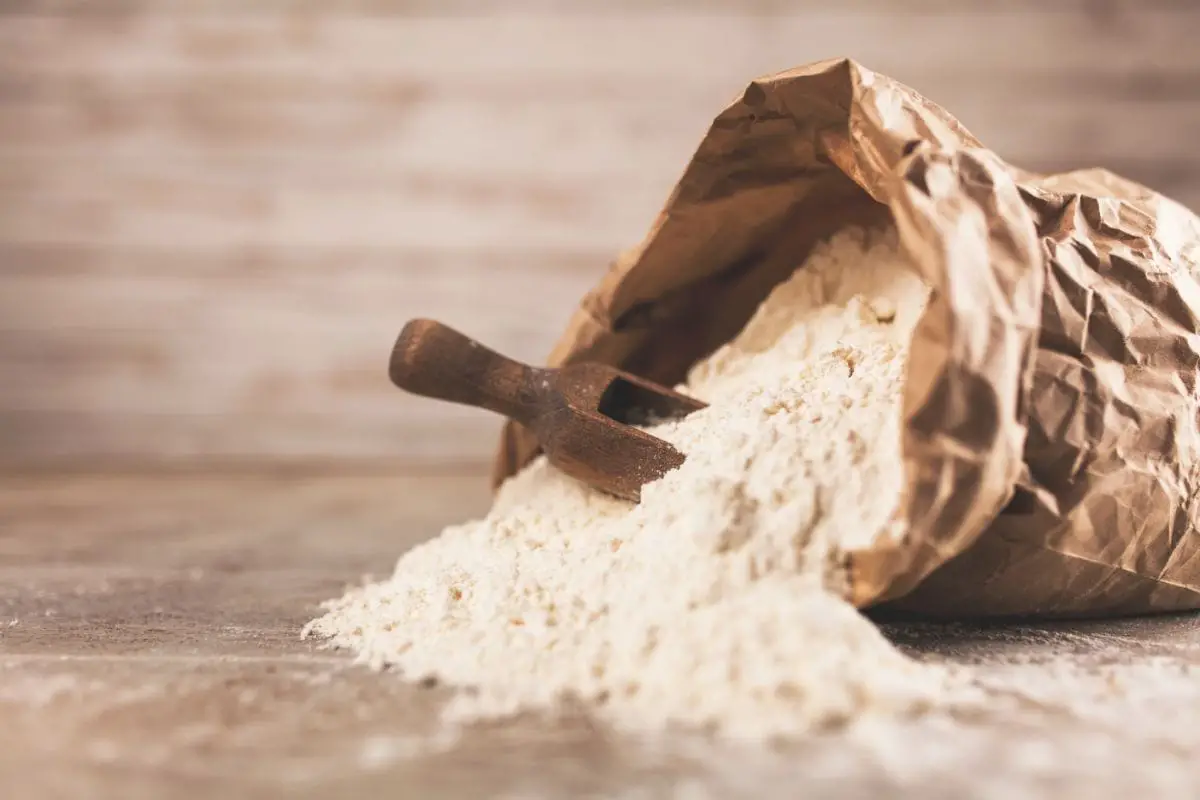In most kitchens, flour is an important ingredient used more often than not by many. It is implemented in everything from baking cakes to making bread. And, you can choose from all different types of flour from bread flour to cake flour and whole wheat flour to pastry flour.
With so many different brands of flour available in the market, it’s natural to wonder if a flour brand even matters. Does the more expensive brand necessarily mean better quality flour, or is it all just marketing hype?
In today’s blog post, we aim to explore whether the brand of flour matters and what factors one should consider when selecting the right flour for your recipe.
We’ll dive into the differences between various types of flour, how the quality of the wheat impacts the final flour quality, and how different brands may offer unique characteristics that can affect your recipe’s outcome.
Additionally, we will look at how different brands of flour affect the nutritional value of the final product. Some brands may add vitamins and minerals to their flour, while others may not.
We will examine how these differences can impact the nutritional value of the final product and what to look out for when selecting flour for a healthier outcome. So, let’s find out if the brand of flour really does make a difference!
Brands Of Bread Flour, Cake Flour, All-Purpose Flour And More
Different flour brands vary by protein content that is in turn based on mill formula. For an experienced baker, there will be a difference between certain brands of flour.
As for novice bakers, all brands of flour, whether they be bread flour, cake flour, whole wheat flour, what flour, or all-purpose flour will work. That being said, some will provide you with better results, mainly down to their protein content.
Generally speaking, the brand of flour and its quality that a baker prefers will depend on its compatibility with certain recipes and the type of the flour itself.
Some of the most popular brands of flour include:
- Gold Medal
- King Arthur
- Pillsbury
- Bob’s Red Mill
- White Lily
While protein content is the main contributor to how good a brand of flour is, there is a lot more that goes into good and bad quality examples of flour. For instance, the type of flour used can be more important than the brand you use.
Also, when making different types of breads, you’ll want to ensure you’re using high-quality flour, such as King Arthur bread flour.
Commonly Used Types Of Flour
Whole Wheat Flour
Wheat is separated into three parts during the milling process. For regular flour, one part is milled, but for whole wheat flour, all three are milled. This additional wheat has an impact on the gluten creating a sticky and dense dough. Such flour is best for bread and cookies.

Bread Flour
Bread flour is derived from hard wheat. This is what gives it its distinctive high protein content and strength. The strength of the gluten in bread flour tends to work very well with yeast, helping bread rise.
Bread flour is also important for the making of bread as it provides that desirable chewy texture and aids in the crust turning golden brown when baked.
All-Purpose Flour
In the past, kitchens were typically stocked with just one kind of flour, which was all-purpose flour. Despite the availability of other flour varieties, many with a more desirable protein content, all-purpose flour remains the most widely used and flexible option.
However, it’s possible to produce other types of flour by mixing various ingredients with all-purpose flour right in your own kitchen. It’s worth noting that when a recipe calls for “flour,” it is generally referring to all-purpose flour.
Cake Flour
Cake flour contains the lowest protein content among all types of flour, including bread flours and bleached flour. This results in a more delicate texture, which is highly desirable for baking cakes, muffins, and even biscuits.
Additionally, due to the bleaching process it undergoes, cake flour is able to absorb more liquid and sugar during baking, resulting in a moist and tender final product.
Bleached And Unbleached Flour
Bleached flour is chemically treated to speed up the aging process, resulting in a whiter color and finer texture. It has a weaker protein content and structure than unbleached flour, making it suitable for delicate baked goods.
On the other hand, unbleached flour is aged naturally and has a denser protein content, making it better to bake bread and other baked goods that require more structure.
Pastry Flour
Pastry flour is a form of unbleached flour with a lower protein content. This is why pastry flour is best for flaky, tender baked goods, such as tarts and pie crusts.
Its pastry content is somewhere between all-purpose and cake flours. If you like, you can make your own easily by simply combining two parts all-purpose flour with one part cake flour.
Other common types of flour used include:
- Self-raising flour – This is made from soft wheat and has a low protein content. It is best for scones, biscuits, and pancakes.
- 00 flour – This is a form of Italian flour getting its name from its grind classification used in the Italian flour milling process. This has a high protein content and has a fine-powdery quality, best for pastries and cakes.
You can also buy gluten-free flour and ethnic flours used for dishes from various cultures around the world.
In Summary – Does Flour Brand Matter?
Generally speaking, some brands of flour, such as King Arthur flour and Pillsbury flour are superior to others. But, for inexperienced bakers, the difference can be hard to notice. The more you bake, though, the better flour you would need, and better quality brands.










